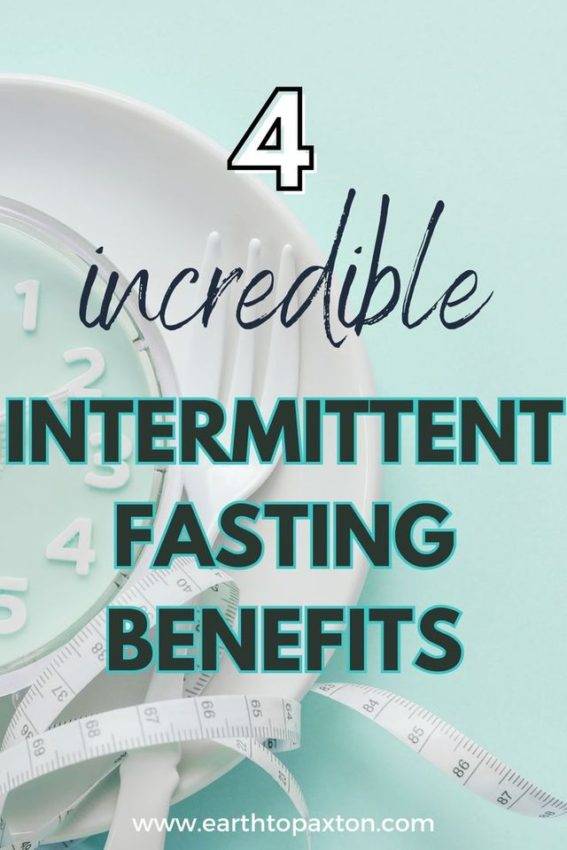
the information provided on the blog and the material linked are for educational purposes only and does not substitute for professional medical advice. please consult a medical professional with any questions or concerns.
Intermittent fasting: Have you wondered what the hype is all about? You might have heard the term, but do you really know what it is or how it works? This information should help you decide if fasting is right for you, so let’s dive in.
The Basics
Intermittent fasting (IF), or fasting for short, is different from many other diets. Instead of focusing on what you are eating, the idea is to focus on when you are eating says Hopkins Medicine.
By creating an eating window in your day, you are giving the body time to rest and recharge. Bolder Medicine says fasting gives the body the opportunity to go through processes it otherwise wouldn’t have time to if you were in a constant state of digestion. One of these processes include giving our body the change to become more efficient and cleanse itself of toxins.

The concept of fasting has been around since the 5th century BCE, it was originally recommended to patients with symptoms of illness reports Britannica.
Just like any other diet, it’s not one size fits all. There are different ways to fast. You can fast for 24 hours, 12 hours, 16 hours, you get the point. Some people fast one or twice a week and other fast daily. Totally dependent on your body and what works for you.
Always consult your doctor before making any drastic changes to your diet.
Benefits
Research suggests there are many health benefits that come along with intermittent fasting such as weight loss, decreased inflammation, and better heart health.
Weight Loss
One of the most common and most talked about is probably weight loss. Restricting food during certain hours will naturally create a caloric deficit, which is needed to lose weight. If you are specifying an eating window between, say for example, noon to 8 pm, you aren’t going to be able to eat as much as you would if you started eating at 8 am.
Once you stop eating for the day (and cut out those after-dinner snacks) your body beings resting, and your metabolism slows down.
Alongside possibly losing weight, IF is great to maintain a healthy weight.

Repair
Many different things start to happen when you give the body the downtime to repair itself instead of constantly trying to digest food. One of those things is the shift in your cell causing them to be more active and regenerative.
Just like us humans, working 24/7 causes burn outs, exhaustion, and impacts health. Giving the body the ability to rest, you will restore your energy, wellbeing, and spirit.
Additionally, Aging Research Reviews suggests that food deprivation (in this fashion) has a positive impact on longevity and anti-aging.

Helps Inflammation
The standard American diet has been linked to many health diseases, illnesses and inflammation. Inflammation is good for the body until it becomes chronic. Bad lifestyle choices like diet, alcohol, and stress can lead to high blood pressure, heart disease, diabetes, rheumatoid arthritis, digestive issues and so on.
Check out these related articles on inflammation
Trending Posts
Fasting is a tool that can be used to manage or even eliminate chronic inflammation. This article by Cameron Pitts and Maurice Beer M.D highlights many different research studies that suggest a distinct connection between inflammation and intermittent fasting.
IF can improve inflammation without compromising the immune system, it can also prevent bacteria (and other proteins) from triggering inflammation.
Heart Health
With heart conditions being the world’s leading cause of death, it’s important we are maintaining our heart health and prevent disease. High blood pressure, for example, may seem common in friends and family but it is a serious life-threatening condition. Other heart related ailments include high cholesterol, type 2 diabetes, and high blood sugar.
Calorie restriction diets like IF have been shown to be effective in managing in weight control, hypertension, dyslipidemia and diabetes.

How to Start Fasting
Now that you have an idea of what fasting is, I recommend you give it a try. (Of course, with guidance from your doctor). Start small. Maybe you stop eating after 6 pm. Maybe you don’t start eating until 10 am. You can adjust according to your schedule and needs.
Wondering what you can or can’t eat during a fast?
Fasting does not mean you cannot ingest anything at all. It means you want to avoid food or drink without calories. Calories are what break your fast.
Obviously, you are going to want to drink water, but you can also drink black coffee (no cream or sugar), tea, club soda, sparkling water or seltzer. Any beverage without calories.
Personally, I drink black coffee (and water) until about 10 or 11 am and then break my fast with a nice breakfast. Coffee suppresses my appetite giving me the opportunity to fast without feeling uncomfortable.
For me, there is no set time on when I will feel hungry. Some days I fast longer than others but listen to what my body needs. If I am hungry at 9 am. I go for it. I am not forcing a fast. But I will say, it is definitely an adjustment at first.
Do what works for you!!
If you suffer from chronic inflammation, fasting might be right for you. Anyone can take advantage of the benefits of fasting as our bodies need time to rest and recharge.
While I don’t recommend fasting as much for women because of their intense reaction to hunger (specifically hormonal imbalances), I do recommend you do further research to see what is best for you.
Once again, make sure to consult a medical professional before making any extreme changes to your diet and lifestyle.
This post contains affiliate links meaning I may earn a commission, at no extra cost to you, if you make a purchase using these links. That being said, I only recommend products I love and trust.




